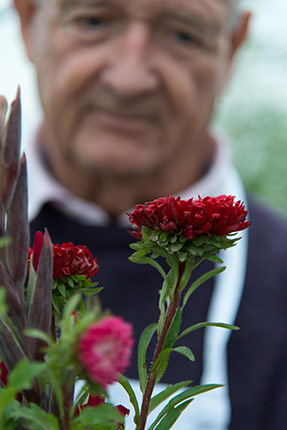The benefits
What social scientists and scientists tell us
Research has shown that cognitive, social, physical and spiritual demands of older age are effectively addressed with regular gardening. It is shown to increase protection against developing dementia [1], and there are suggestions that there are improvements in cognition [2].
Gardening improves sleep [3], self-esteem and mood [4], orientation [5], reduces depression [6], decreases disruptive behaviour [7], levels of aggression [8] and violent incidents [9], and reduces trespassing [10] and pacing [11] in care homes. It increases levels of alertness [12], socialisation [13] and social integration in care settings [14]. It lessens the stress of residents moving into care [15], and increases a sense of personal control [16].
Gardening is shown to decrease the number of falls [17] and their severity of injury [18]. It reduces blood pressure [19], improves grip strength [20] and fine motor skills [21], stimulates appetite [22], eases bed sores [23] and assists pain management [24].
Wider spiritual matters of later life can be addressed such as providing an opportunity to discuss issues in a non-threatening way [25], offering a gardening legacy [26] through the development of creativity and self-expression [27], whilst providing a connection with nature [28].
In older folk’s care settings, research shows that greening the environment both indoors and outdoors may benefit staff, relatives, visitors and care providers. Green environments have been shown to improve visitors’ ability to cope [29], improve staff mood, comfort and job satisfaction [30], reduce absenteeism [31] and turnover [32]. Greening care settings also contributes to increased satisfaction by families and older folk with the provider [33] and increases the value of the care setting [34].

